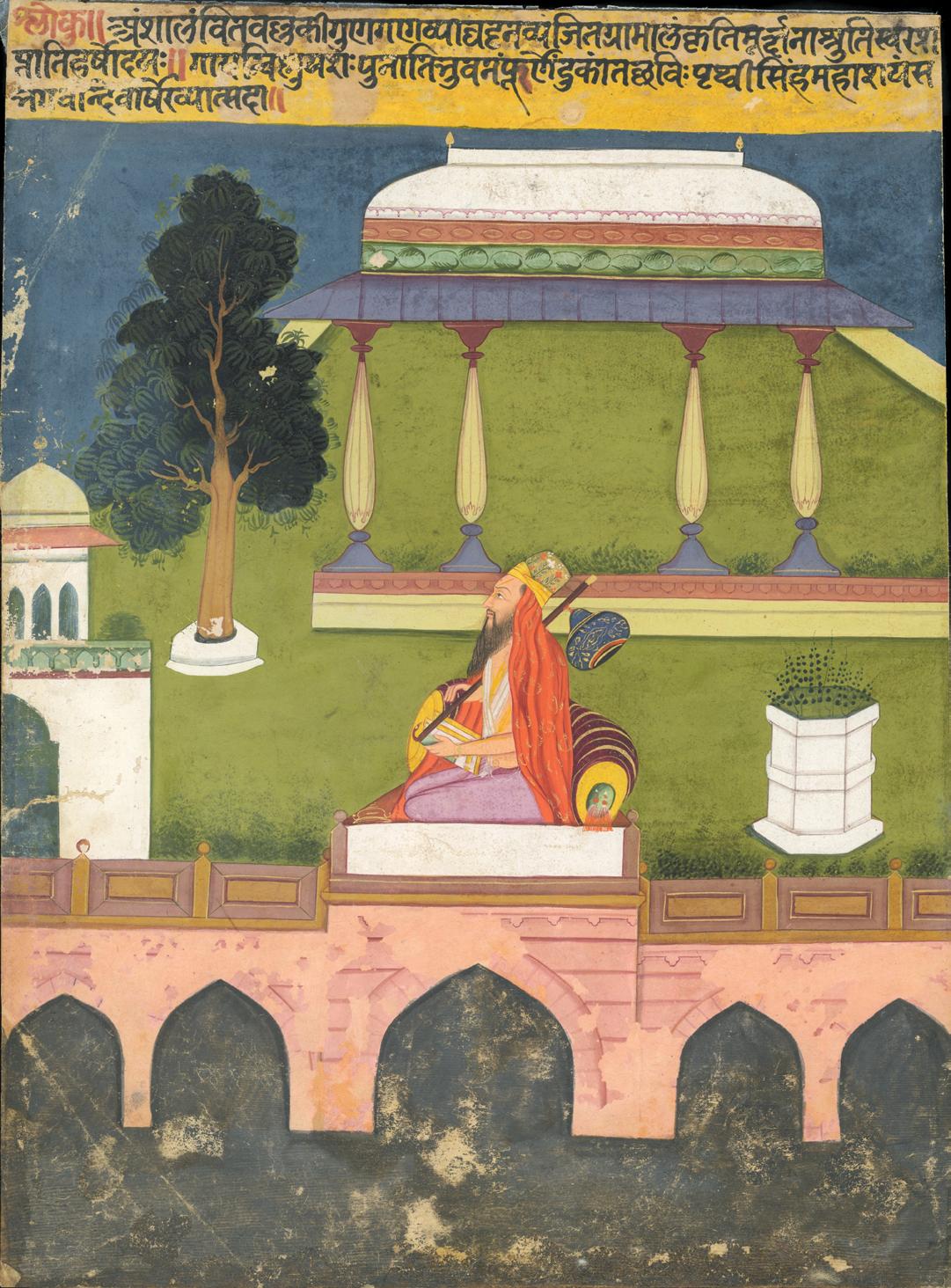
1 minute read
The Celestial Musician, Narada
The Celestial Musician, Narada
Bikaner, circa 1630-1640
Opaque watercolor heightened with gold on paper
10 ⅛ x 7 ½ in. (25.7 x 19.1 cm.)
Provenance:
From an important European collection.
In Hindu mythology, Narada is revered for both his sage advice and his mischievous ways, creating some of Vedic literature’s most humorous tales. He is also known as a master of the vina and is frequently depicted with one, as in the present scene. Narada is said to have dictated the story of Rama to the esteemed Sanskrit poet Valmiki. Upon visiting Narada at his hermitage, Valmiki asked who the perfect man was; someone powerful, educated, fear-striking, and beautiful. Narada responded that he knew of only one, and that was Rama. He then went on to give an account of Rama’s adventures to Maharishi Valmiki, who authored the Ramayana.
This painting belongs to the same set as the illustration of Brahma; from the same series as The Liberation of Gajendra, illustrated by Andrew Topsfield in In the Realm of Gods and Kings, New York, 2004, p.117, no. 43, formerly in the collection of Cynthia Polsky and sold at Bonhams New York, 16 March 2015, lot 70.
Recto translation:
Narada, the sage of the heaven, is a great god [bhagavan]. He becomes overwhelmed with joy as he creates the Vedic melody, characterized by regulated rise and fall of sounds through the musical scale [grama] with the skillful use of the plectrum for manipulating the multiple strings of the lute that he carries on his shoulder. The sage, whose appearance is as lustrous as the moonlight of the full moon night, purifies the world as he sings Vishnu’s prayers. May the sage protect the great king Prthvisimha.
Verso translation:
[The name of the meter] is Savaiya. Having seen the rapidly increasing problematic situation caused by viraga [the lack of gentle feeling of fondness or liking] in the world, [the sage] Narada incarnated himself and explained [the significance] of raga [attachment; enthusiasm] to everybody in order to increase anuraga [love; affection]. [The name of] the tala is Samaipagi. Those who sing the virtues of [other people] are smart, control the feeling of mind and meditate.
Translations by Gautama Vajracharya.





